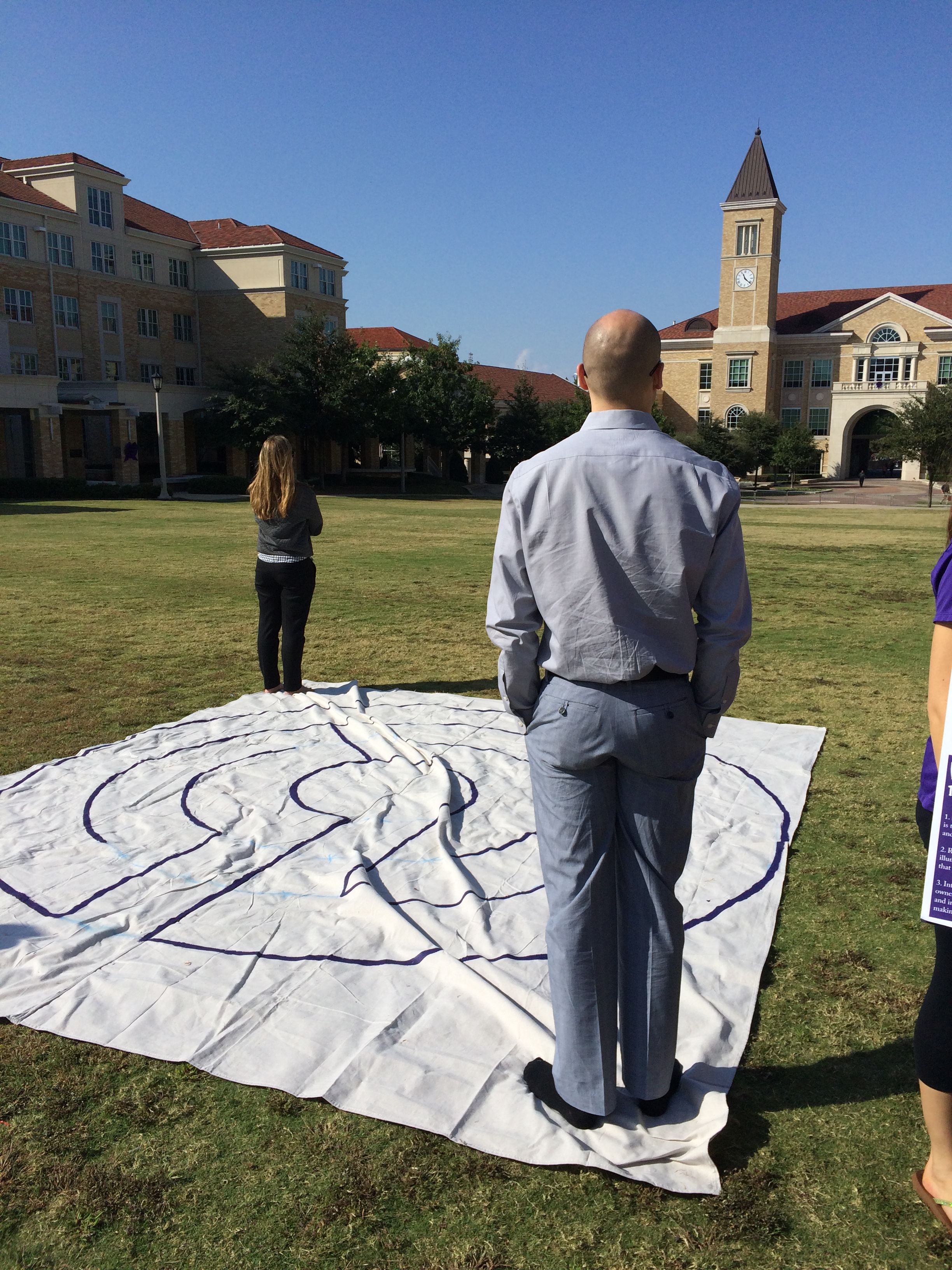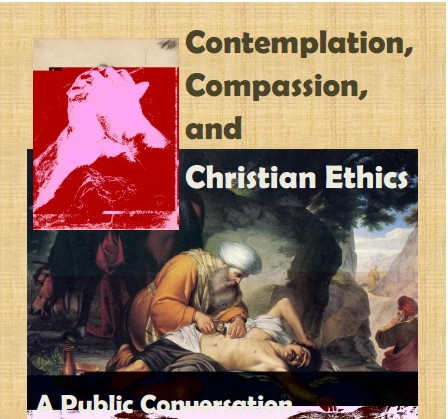TCU’s mission statement is: “To educate individuals to think and act as ethical leaders and responsible citizens in the global community.” Students have opportunity to accomplish this and grow through academic pursuit and a variety of university initiatives, student organizations, and service efforts, all largely focused outward. The entity of TCU sees itself as a piece of a “global community,” and engaging that diverse and vast community outside our campus and outside ourselves is held as vitally important to both the individual and collective growth of members of the TCU family.
Of growing presence on campus, however, is the emphasis on an interior focus to achieve this mission. The TCU Contemplative Studies Faculty Interest Group has been incredibly active on campus this fall and continues to introduce a variety of opportunities for integrating contemplative practices into the campus atmosphere. A group of faculty and staff are led in meditation over their lunch hour on Tuesdays. Dr. Matthew Johnson led three multi-week meditation sessions for students focusing on relieving stress and anxiety, increasing happiness and focus, and improved sleep. Last spring, members of the Contemplative Studies Faculty Interest Group and the Office of Religious and Spiritual Life partnered to construct a labyrinth within our “Frog Henge,” leading participants in a walking meditation. Last Thursday, students and staff took advantage of the opportunity to reflect, pray, and meditate as they traveled through a labyrinth constructed in the middle of the campus commons.
But it’s not just about meditating. TCU faculty and staff are cultivating contemplative practices in several elements of university life.
It’s tempting to view meditation, prayer, yoga, and other contemplative practices as merely tools to provide rest from academics, work, and the highly scheduled daily lives of students and staff. And they certainly do promote awareness and wellness of the mind, body, and spirit.
 They also crucially intersect with faith, morality, and academics. In September, Rev. Dr. Timothy Robinson and Chuck Dunning led a panel discussion that fed into a public conversation on “Contemplation, Compassion, and Christian Ethics.” That same month, the Contemplative Studies Interest Group also hosted guest artist Barbara Dilley for two sessions of meditative dance and mindfulness, linking physical movement to the interior present.
They also crucially intersect with faith, morality, and academics. In September, Rev. Dr. Timothy Robinson and Chuck Dunning led a panel discussion that fed into a public conversation on “Contemplation, Compassion, and Christian Ethics.” That same month, the Contemplative Studies Interest Group also hosted guest artist Barbara Dilley for two sessions of meditative dance and mindfulness, linking physical movement to the interior present.
Beginning this spring, Dr.s Andy Fort and Susan Douglas Roberts are teaching a course on these subjects entitled, “Mindbodyness: Contemplative Movement and Reflection,” allowing students to delve academically more deeply into the history and development of practices that heighten mindfulness and more closely and fluidly link mind and body. The course description reads:
In this course, we will introduce the study and practice of contemplation through movement, reading, and writing, bringing individual and group critical reflection to each. What is “contemplation” and what are some approaches to it, past and present (goals, techniques, cultural contexts)? What theories and practices of mind and body have been used to cultivate contemplative self-awareness? How do practice and reflection influence one another, and how we engage in society and the natural world?
This is believed to be the first course of its kind in the nation! Students who wish to learn more or are interested in enrolling in the course should contact either of the mentioned professors.
The college lifestyle is one increasingly programmed, scheduled, overflowing, and potentially imbalanced. Moments of quiet, of rest, of Sabbath, reflection, or prayer, of mindfulness, and of deeper connection between body and mind are thus increasingly necessary. As the Contemplative Studies Faculty Interest Group facilitates not only opportunities for mindful contemplation but also means for intellectually grasping these traditions, they promote centered, peaceful lives for students and staff on campus.
By Zoey Murzyn
Do you have a story about faith and spirit on campus that you want our community to know? Email me at z.a.murzyn@tcu.edu!

Comments